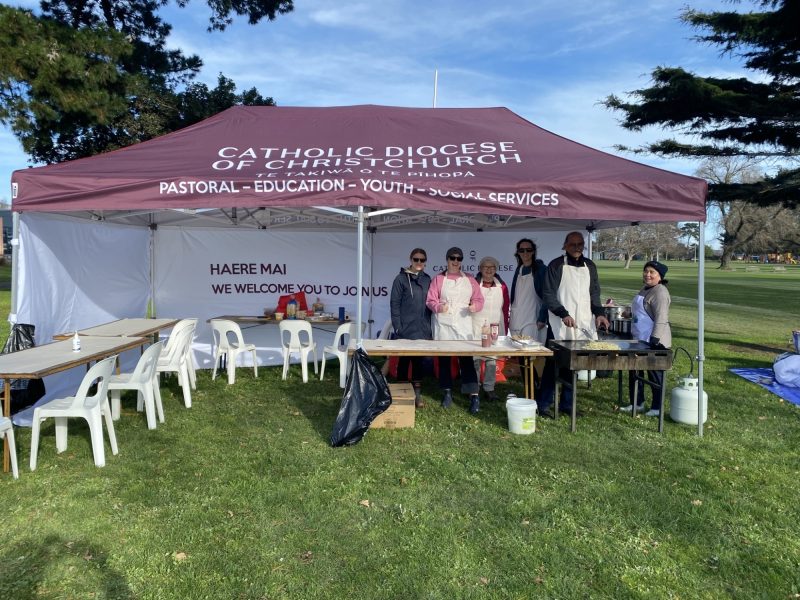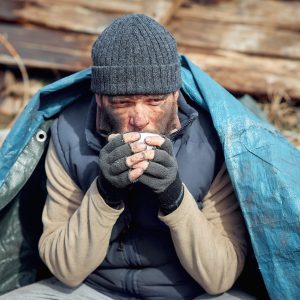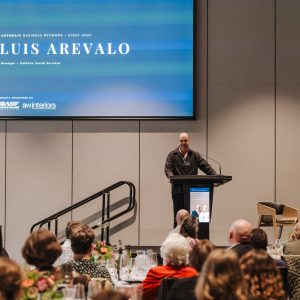Catholic Social Services and the Call to Serve
Editor’s note:
Luis Arevalo is our Catholic Social Services (CSS) Manager. He and his dedicated team work quietly away in meeting the needs of some of the most vulnerable people in Christchurch and in the wider diocese. I recently met with Luis to ask him about the work CSS is currently doing.

“What are the principles underpinning your work?”
“Perhaps I should start by saying that Catholic Social Teaching offers us a different path: where human dignity, solidarity, and the preferential love for the poor are key. For over six decades now, CSS has lived these principles in the heart of Christchurch. In more recent years, we’ve turned our gaze to the wider diocese, from Waimate in the south to Cheviot in the north.”
“Tell us about one of your more recent initiatives.”
“We more recently opened our doors for free counselling. This is the only service of its kind in Christchurch. In doing so, we wanted to clearly signal that every person, regardless of their ability to pay, deserves to be heard, healed, and treated with dignity. This year alone, 645 new clients walked through our doors, each carrying burdens too heavy to bear alone.”
“What sort of demand do you have for this service?”
“Our 8-10 week waitlist is testament to the need for healing in our community. We make sure people are welcomed, not as a case number or recipient of charity, but as someone deserving of our very best.
Through our Child and Family Psychology and Learning Assessment services, we’ve watched children who were once labelled as “problems”, discover they are uniquely made with their own gifts. We are running a pilot programme in four state schools. These are Shirley Primary, Linwood Avenue Primary, Rawhiti School, and Gilberthorpe. This programme is making sure children are receiving support, when their families might never have afforded it.”
“What are some of your team’s more profound experiences in this work?”
“Some of our most profound moments happen not in offices or assessment rooms, but in parks across Christchurch, during the winter months. Our soup kitchens were born from the wisdom of a homeless client, who suggested we “feed the people directly from the nearest park.” Sometimes the best solutions come from those who understand need the most. We work with St Vincent de Paul. In doing so, we don’t just distribute food, we seek to restore dignity. When volunteers hand out winter clothes and blankets alongside warm meals, they are saying “I identify with your suffering.”
We also offer free haircuts every second Tuesday. This initiative came again from someone who couldn’t afford a haircut for several years.
Our CREAM programme (Conflict Resolution, Emotional Awareness and Anger Management) and Seasons for Growth courses recognise that healing isn’t just individual, it ripples through families, communities, and generations.
Project Good Faith represents perhaps our most challenging and sacred work, walking alongside survivors of abuse, meeting them exactly where they are.
It offers practical support like firewood and food vouchers, while honouring the deeper truth that healing happens in community.”
“What are your CSS Team looking to do next?”
“We have not been able to offer our services to people on the West Coast of our diocese. As with every organisation committed to justice, we struggle from lack of funding.”
As I listened to Luis speak with such passion about the work of CSS, the corporal works of mercy came to mind. Four of these are a clear summary of their work:
1. Feed the hungry.
2. Give drink to the thirsty.
3. Clothe the naked.
4. Shelter the homeless.
On behalf of our Inform readership, I pray that you and your team will receive every blessing as you go about this work.
For more about the work of CSS and how you might help support it, visit catholicsocialservices.nz






